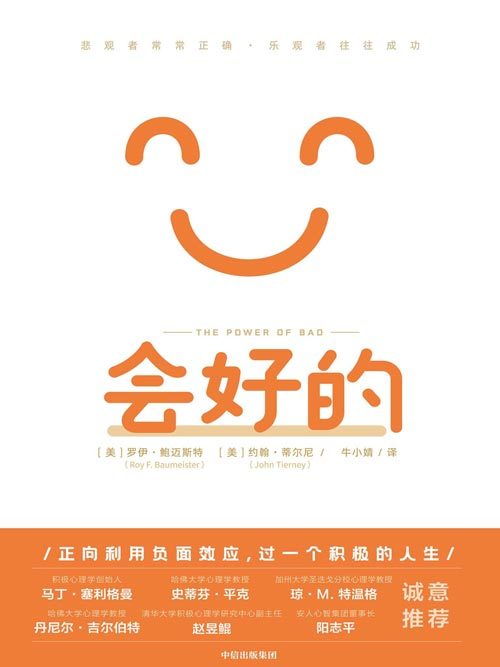
寻找隐喻
Why is "bad" more powerful than "good"?

In the fast-paced and high-pressure modern society, in the current network environment, in our Weibo and WeChat Moments, there are all kinds of negative events and negative emotions, disasters that happen once in many years, unheard of "black swans", frequent Emergence, bad news is constantly updated, why does bad news always spread faster than good news?
In "It Will Be All Right," two authors, social psychologist Roy Baumeister and New York Times science columnist John Tierney, offer an interesting insight that "bad" is better than "Good" is more powerful.
The English name of the book "Will Be Good" is The Power of Bad, which literally translates to "bad" power, which refers to the influence of negative events and negative emotions, generally stronger than positive events and positive emotions.
We all have the experience that bad events outweigh good ones, whether in daily life, intimacy, interpersonal relationships, or in the learning process. We are always susceptible to being "bad", creating anxiety and fear, and making less-than-wise decisions.
Psychologists have found that, on many levels, "bad" and "good" are asymmetrical, with "bad" being more powerful. For example, the pain brought by criticism is much stronger than the pleasure brought by praise; the impact of a bad first impression on a person is far greater than that of a good impression; a parental neglect in childhood may affect a person for decades or even In a lifetime, few people will spend the same amount of time reminiscing about a beautiful childhood experience.
The strength of "bad" is actually set off by the weakness of "good". "Good" refers to positive events and positive emotions, such as work going well today, working together on projects, and having dinner and a movie that made you happy.
The power asymmetry between "bad" and "good" is because our brains tend to amplify the effects of "bad" and weaken the effects of "good," a tendency psychologists call "negative effects," or " Negative Bias".
Under the influence of "negative effects", we will pay more attention to negative things, such as natural disasters and other negative events, and negative emotions such as anxiety and pain; we will think that negative events are more powerful, just like an old Russian saying, "One A spoon of tar spoils a barrel of honey, but a spoon of honey does not change a barrel of tar"; negative events affect us longer, for example, in an experiment where a sterilized cockroach was put into a glass of apple juice and then removed immediately, Not only did most people refuse to drink it on the spot, they would never drink apple juice again, even if it was clean and fresh.
Why is there a "negative effect"? The most crucial reason is the evolution of the brain. The human brain is literally built for "badness," the authors say. Human ancestors needed to survive in a dangerous environment, and the brain gradually evolved a threat early warning system. This alarm system is very sensitive. Before we realize the danger, the body will automatically respond, either stay to fight or run away.
The evolution of the brain makes us naturally attracted to threats. For example, an 8-month-old baby would quickly turn his head to see a picture of a snake instead of a frog. When 5-year-olds looked at a set of pictures of faces, they were able to quickly identify expressions of fear or anger, rather than happy faces.
Why make the "bad" power stronger? Because the environment changes, the threat warning system in the brain overreacts. Human ancestors once faced many deadly threats, such as natural disasters, beasts, etc. The evolution of the brain helps people respond quickly and stay away from danger. Now, our living environment is very safe. Compared with the past, there are almost no fatal threats, but the brain will still send out an early warning signal as soon as it finds something wrong, and the body will respond. Fear keeps growing. No matter how good things are, they have to be adapted to the scene. These ancient reactions are originally responsible for protecting us. When the human life scene changes from danger to safety, these reactions are excessive, which leads us to make irrational decisions.
Like my work?
Don't forget to support or like, so I know you are with me..
Comment…